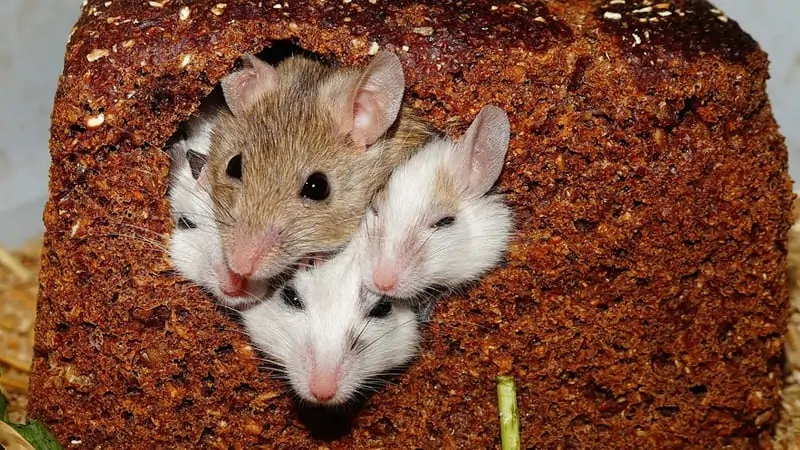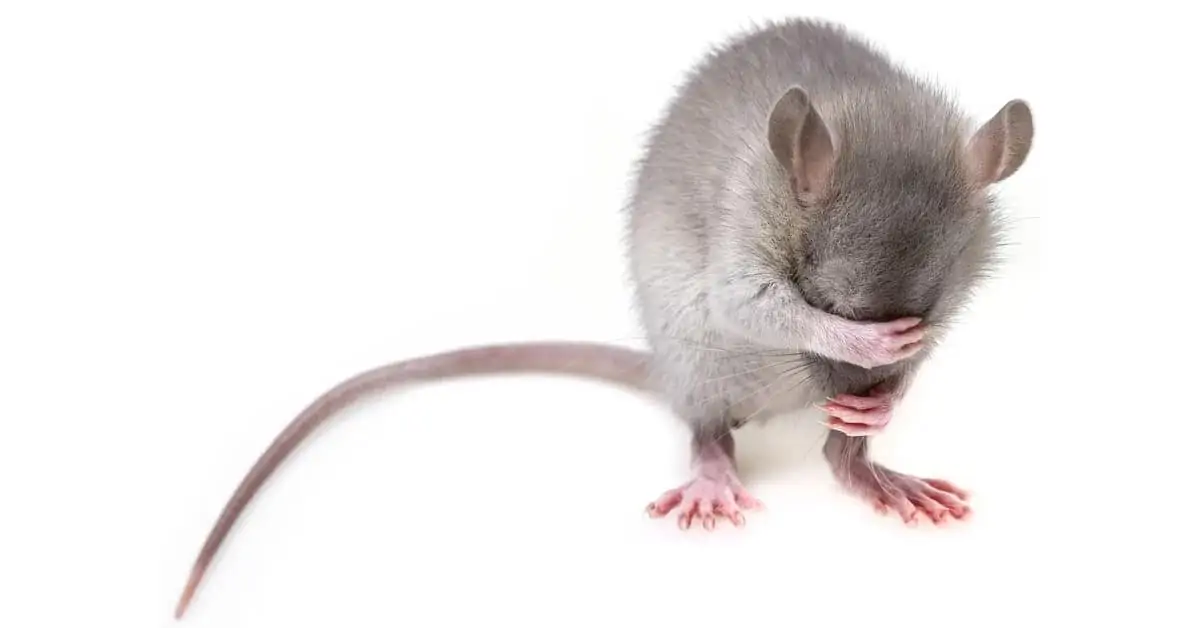Mice are pocket pets that are fascinating to observe in the right environment. They are social creatures and you should not keep them alone. If you didn’t know this and you have a lonely mouse, how do you stop him/her from being lonely?
The best way to stop a mouse from being lonely is to introduce a playmate to him/her. Based on gender and age, you can house mice differently. Even for the gender that has to be housed alone, having other mice of similar gender in the same vicinity is helpful.
In this article, I will discuss the effects of mice being kept by themselves and how to stop them from being lonely. I also explore if mice should be kept in pairs and the proper ways to pair them.
Do Mice Get Lonely By Themselves?

Mice, both wild and domestic (fancy,) are social and playful creatures. If kept in isolation, they can get lonely and even depressed. The degree of loneliness varies with gender, but I advise you not to keep them as single pets.
Researchers have found that mice who live alone experience a great deal of stress. Stress in the early years has been linked to physical brain and psychiatric problems in mice. Sounds shocking, doesn’t it? Those who are lonely and depressed will start hiding and will stop eating.
Although Fancy mice can live alone, it is not recommended for females. Living solitary lives can cause them to become lonely and depressed. They are the social butterflies of the species and they need to be with others to thrive.
In contrast, male mice do not require social interactions with other mice. They are best kept solitary and are likely to develop a strong bond with their owner if left without other mice.
How To Stop A House From Being Lonely?
The only way to stop mice from being lonely is to keep them with other mice. They are social creatures and they enjoy living in colonies. Keep them together in genders that get along well.
For optimum integration, they should be kept together from a young age. Either all males or all females. This is one of the rare scenarios where males can stay together. Keeping them together from a young age will help to prevent imbalance in social groups and fighting amongst themselves.
To get mice that have grown up together, buy from breeders and ask them to pre-group them before they are weaned. In this way, the group comprises siblings. How lovely it is to have mice that are siblings!
It is okay to have mice living in pairs, trios, or even small groups, so long as there is enough room in their cage. It is no problem for female mice to be introduced to each other, and they bond very quickly. Keeping males together is a little trickier to handle.
Male mice (bucks) are very territorial, even with littermates. One solution for a lonely male mouse is to place him with an older, sterile female. There is no danger of unwanted baby production here.
Alternatively, a castrated male mouse could be placed with the lonely mouse. Male mice which have been castrated are more acceptable compared to intact males, probably because they are less aggressive and less competitive.
Even if you are unable to keep male and female mice together in a cage, it is possible to allow them to play together for brief periods. Just ensure they are supervised to separate any fights that may break out.
Never house mice alone unless it is a specific veterinary recommendation. These social creatures find isolation and individual housing extremely stressful. If you have to house them separately, ensure they are kept in the vicinity of other mice of a similar gender.
Hearing, seeing, and smelling others like them will ease the stress of being alone. In addition to this, provide extra environmental materials like toys and burrowing materials, to meet their needs.
Do Mice Need To Live In Pairs?

Similar to us, mice can get anxious, lonely, stressed, and depressed without companionship.
Although they can be kept as solitary pets, it’s always recommended that you get them a pal or two to make them feel more comfortable.
They enjoy grooming and playing with each other and are better kept in pairs. Stressed and lonely mice may begin to overgroom and may self-mutilate in extreme cases. They will bite themselves and cause serious injuries.
How to Pair Mice
As already stated, there are specific ways pet mice should be paired. To ensure a comfortable environment, you have to choose carefully, the mice you put together in one cage. You can pair your mice in these ways:
- Females together:
Females require the company of others to thrive when kept in captivity. Although a pair is ideal, it is better to have at least three of them so that if one passes away, the others can have each other for companionship.
As long as you can provide enough cage space, you can keep up to four females together. They bond easily and even take care of each other’s pinkies at birth!
- Males together:
Although keeping males together is never recommended, those from the same litter may stay together with little to no fighting for territory. It may work if they have never separated and have a large enough cage to maintain their individual spaces.
- Males and females:
The best way to pull this off is to neuter one of the mice. Males live happily with female mice even though they are often kept solitary. Putting reproductive mice together will give you tons of pinkies!
It is best to start with two female mice as pets. They are not as territorial and don’t stink as much as the males do. You can introduce one or two more as time goes on. Always observe your pairs or trios closely, whether male or female. They may break into fights and even draw blood. If this happens, separate them.

